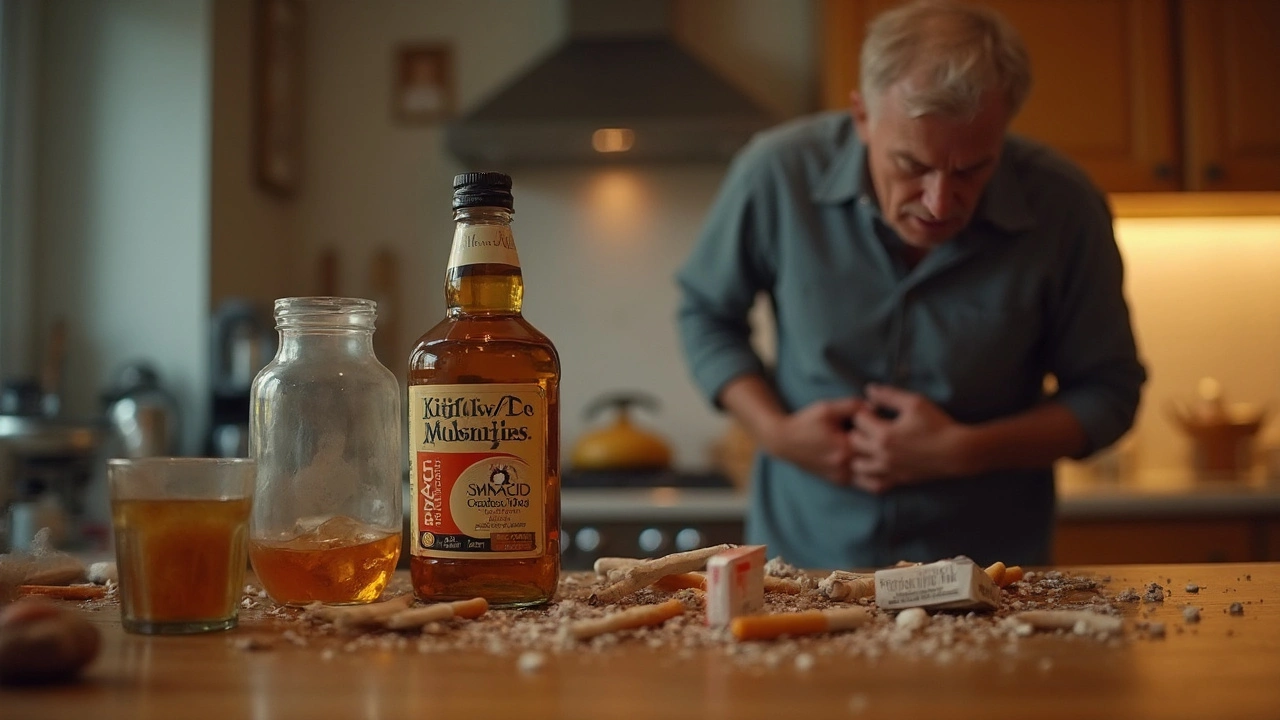Causes of GERD – Why Acid Reflux Happens
Ever wonder why that burning feeling keeps coming back after a meal? It’s not magic – it’s usually something you ate, drank, or a condition inside your body that lets stomach acid splash up into the esophagus. Understanding the root causes lets you take steps before the pain starts.
Common Lifestyle Triggers
Most people with GERD can point to at least one habit that makes it worse. Here are the usual suspects:
- Heavy, fatty meals – Fried foods, pizza, and rich sauces relax the lower esophageal sphincter (LES), the valve that keeps acid down.
- Citrus and tomato products – Their acidity can irritate the lining and increase reflux.
- Chocolate and mint – Both contain compounds that loosen the LES.
- Caffeine and alcohol – They stimulate acid production and also relax the LES.
- Large portions or late‑night eating – A full stomach pushes pressure upward, making it easier for acid to escape.
- Smoking – Nicotine weakens the LES and reduces saliva, which normally helps neutralize acid.
Switching to smaller, balanced meals and avoiding these triggers can cut symptoms in half for many people.
Medical Conditions That Can Lead to GERD
Sometimes lifestyle isn’t the whole story. Certain health issues create a perfect storm for reflux:
- Obesity – Extra belly fat raises abdominal pressure, forcing acid upward.
- Hiatal hernia – When part of the stomach slides up through the diaphragm, the LES can’t close properly.
- Pregnancy – Hormonal changes relax the LES and the growing uterus squeezes the stomach.
- Gastroparesis – Slow stomach emptying leaves food (and acid) hanging around longer.
- Medications – Some asthma inhalers, blood pressure drugs, and antihistamines relax the LES or increase acid.
If you have any of these conditions, treating the underlying issue – like losing weight or managing a hernia – often improves GERD without needing extra meds.
What can you do right now? Try a simple experiment: keep a food‑and‑symptom diary for a week. Write down everything you eat, when you eat it, and any heartburn you feel. Patterns pop up fast, and you’ll know which triggers to ditch.
Also, consider basic habits that help the LES stay strong: eat slowly, chew thoroughly, and stay upright for at least two hours after meals. A pillow wedge at night can keep stomach acid from creeping up while you sleep.
Remember, GERD isn’t a one‑size‑fits‑all problem. Your triggers might be different from a friend’s, but the same basic principles apply – protect the LES, avoid excess acid, and keep pressure low. By spotting the cause early, you can stop the burn before it starts.

How Smoking and Alcohol Fuel Acid Indigestion: Causes, Facts, and Relief
Acid indigestion is more than just a nuisance—smoking and alcohol can make it a constant guest in your gut. This article uncovers how cigarettes and booze wreck your digestive comfort, with real-world stats and tips for relief. You’ll learn practical steps to ease symptoms, plus surprising facts about why these habits hurt. If you deal with heartburn, you’ll want to know what your next drink or smoke could trigger. We break it down with solid info, not scare tactics.
Read More